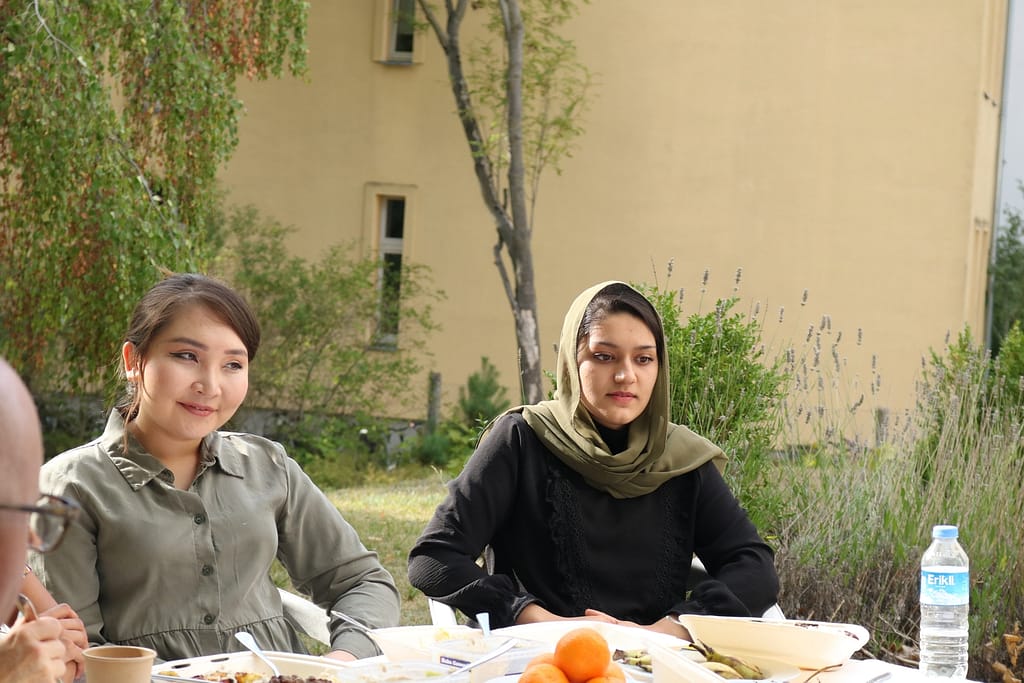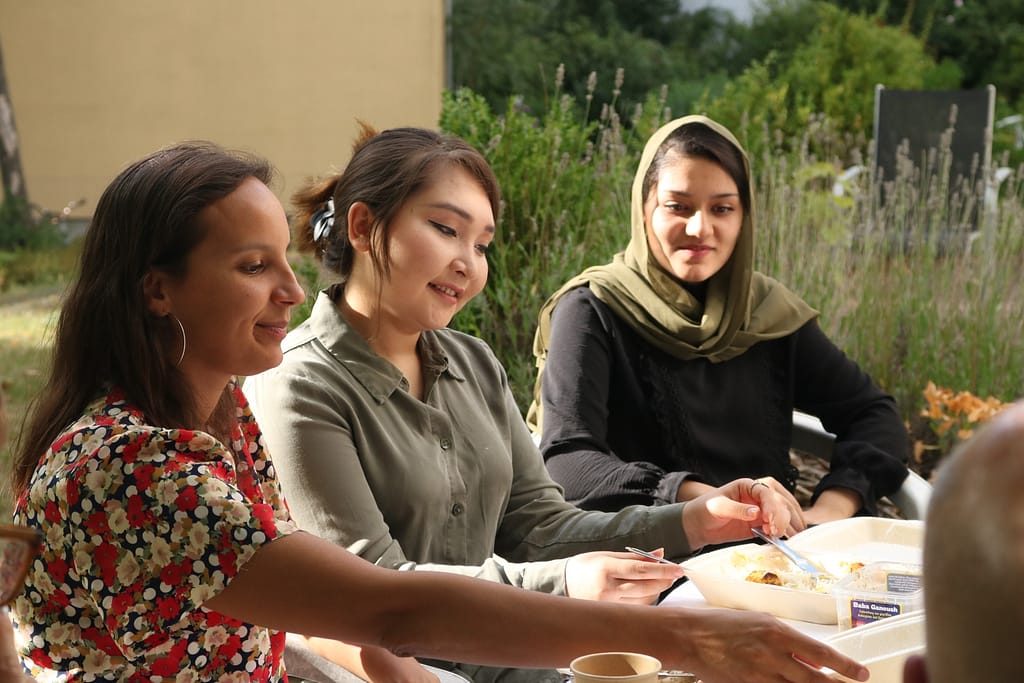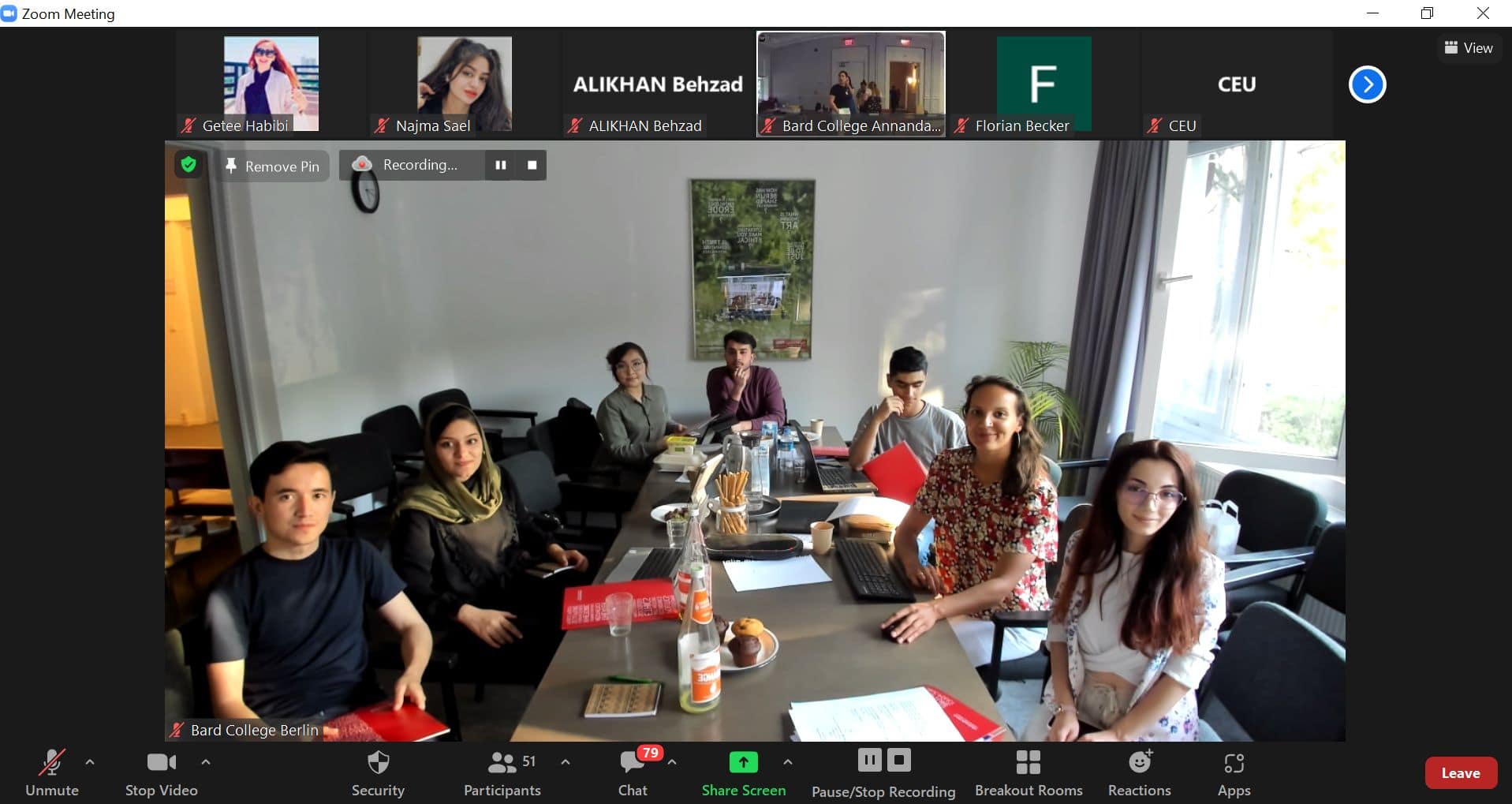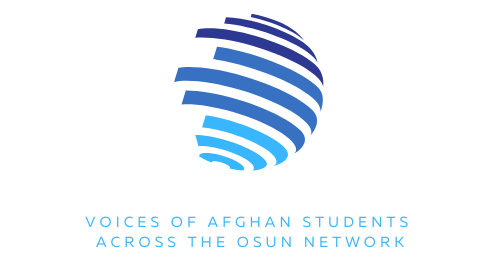Bard College Berlin in collaboration with other OSUN institutions
On August 22 and 23 students from, American University of Afghanistan, American University of Central Asia, American University of Beirut, Al Akhawayn University, Bard College Annandale, Bard College Berlin and Central European University came together to connect with fellow Afghan students across the world, to discuss the ongoing challenges and finding resources to support their ideas through creative problem solving and peer support. About 250+ Afghan students from the mentioned institutions gathered in hybrid format and 12 students presented their civic engagement projects that they are implementing to provide support to students on their campuses or across the network including for students who remain in Afghanistan. The Afghan Students Conference turned into a platform for students to coordinate cross-network activities to promote cooperation and ongoing connections.
The preparation process for the conference started on July 1st 2022. We had over 200 participants online and offline who attended the conference. The participants were from 7 different institutions across the OSUN Network. The conference was a convening of Afghan students and student leaders from American University of Afghanistan, American University of Central Asia, American University of Beirut, Central European University, Bard College Annandale, Bard College in Berlin and Central European University.
During pre-conference organization in July and August for this event all institutions worked on promoting the application form, and having students apply for the conference. Additionally, the organizing team also worked on selecting the participants and informing them about the results of their applications.
During the 2 days conference in August, the organizing team was in touch with all responsible offices at their institutions to make sure that we have all the printed material ready, student helpers and global fellows to help in the facilitation of the conference. All organizers at their institutions made sure that we have IT support, refreshment such us lunch, coffee breaks and dinner prepared for students, certificates are printed, stationary bags are ready and all other logistical preparations are well arranged.



During the conference, we had all 7 institutions prepare a conference room for students from their university to meet in person. However, we also had a zoom arranged for all participants to get online and connect with the entire over 200 participants via Zoom. Throughout the conference we had a total of 5 workshops which covered the following topics: Grounding practices, resilient relationship communication, how to start a civic engagement project, how to take your first steps, team organization and team work. In addition to that, we had 12 students from different institutions present their civic engagement projects and invite other student participants to join them if interested. This was the most important part of this event because many students connected with each other and have already started being a part of each other’s projects. At the end of each day, we had open mic and Q&A sessions. All participants in 7 different countries and 7 different universities were online and taking this conference at the same time from 8:30am EST to 12:30am EST on both days in hybrid format.
At the end of the second day of their conference, all participants and presenters received printed copies of their certificates of participation from OSUN.
Since the students didn’t have enough time for have long discussion during the conference because of the number of workshops offered by experts and the student presentations, and because we had to re-allocate the funds in the amount of $ 1,549 USD that was initially supposed to be spent at CEU for this conference, we organized a post conference networking session for the students to connect and discuss more internally among themselves and brainstorm on ideas about how to stay connected post conference. Once again, we had all 7 institutions come together in hybrid format and be a part of the networking session. All participants were provided with lunch, dinner and coffee breaks depending on their time zones.
Our organizing team are now working closely with all participants from their institutions to ensure that student’s use the project awards for developing their projects further and that students are connected with other afghan students across the OSUN network.



